I typically don't luggage test pickup trucks, sort of for obvious reasons, but there are instances where unique functionality makes it seem like a good idea. Take the Honda Ridgeline, for instance, with its trunk under the bed. Hey, the Hyundai Santa Cruz has one of those, too! It also offers a nifty rolling bed cover I documented in my previous bed review of the Santa Cruz. Admittedly, some of this will be rehashing that, but unlike when I did that test during the Santa Cruz's first drive, I have all my bags this time!
Now, before we get to those, I'd like to discuss what kind of vehicle the Santa Cruz actually is. Literally, it's a pickup, but it's certainly more in the Subaru Baja/Brat or original Ridgeline vein than the mini pickup direction adopted by the Ford Maverick. I mean, just look at the thing. I've always considered the Santa Cruz more of an alternative to compact crossovers than midsize trucks, with its bed providing a different type of versatility that could prove more useful than an enclosed cargo area for certain use cases. I think it's more likely that someone will be cross-shopping a Santa Cruz and an Outback, rather than a Chevy Colorado.
To that end, I'll be comparing the amount of stuff you can fit under that bed cover in the Santa Cruz with what you can fit in the mechanically related SUV sibling, the Hyundai Tucson. While the Santa Cruz's 4.3-foot bed is the smallest among all of today's pickups, its substantially longer than the Tucson's cargo area. Of course, if you stick to loading under the security and weather-tightness of the bed cover, you have a lot less height.
Let's see what happens!
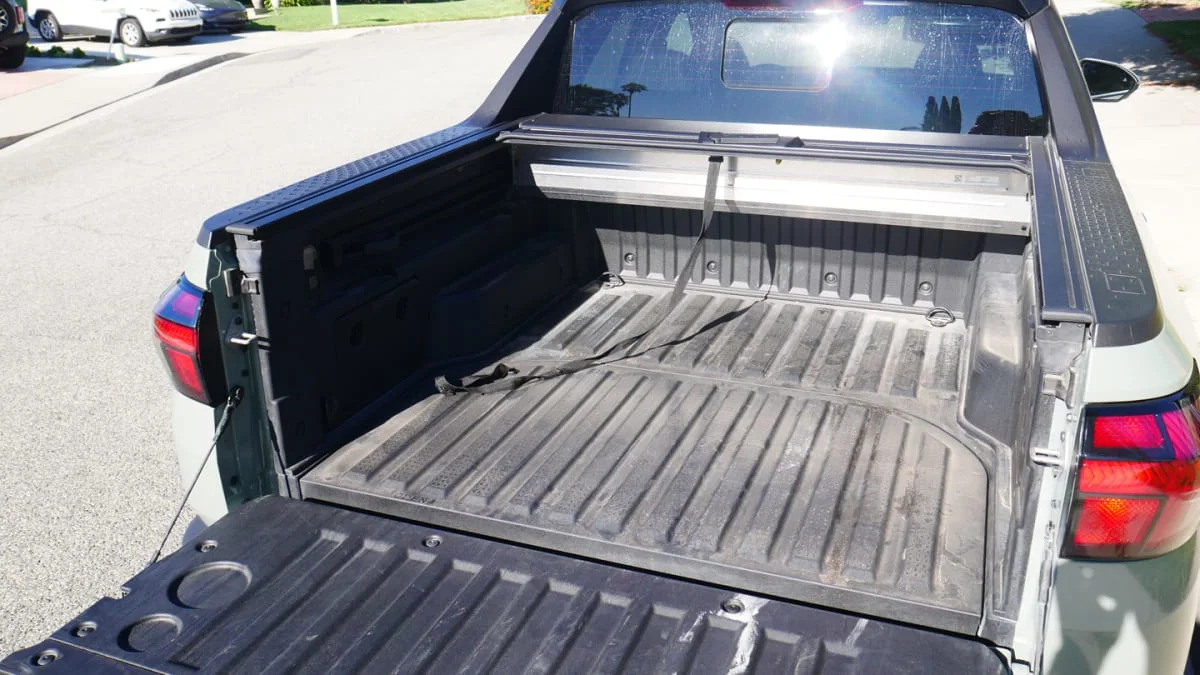
Alright, here is the bed. Again, it is 4.3 feet long, which makes it the shortest pickup bed on the market.
You can see the outline for the bed trunk, so let's take a look at that first.
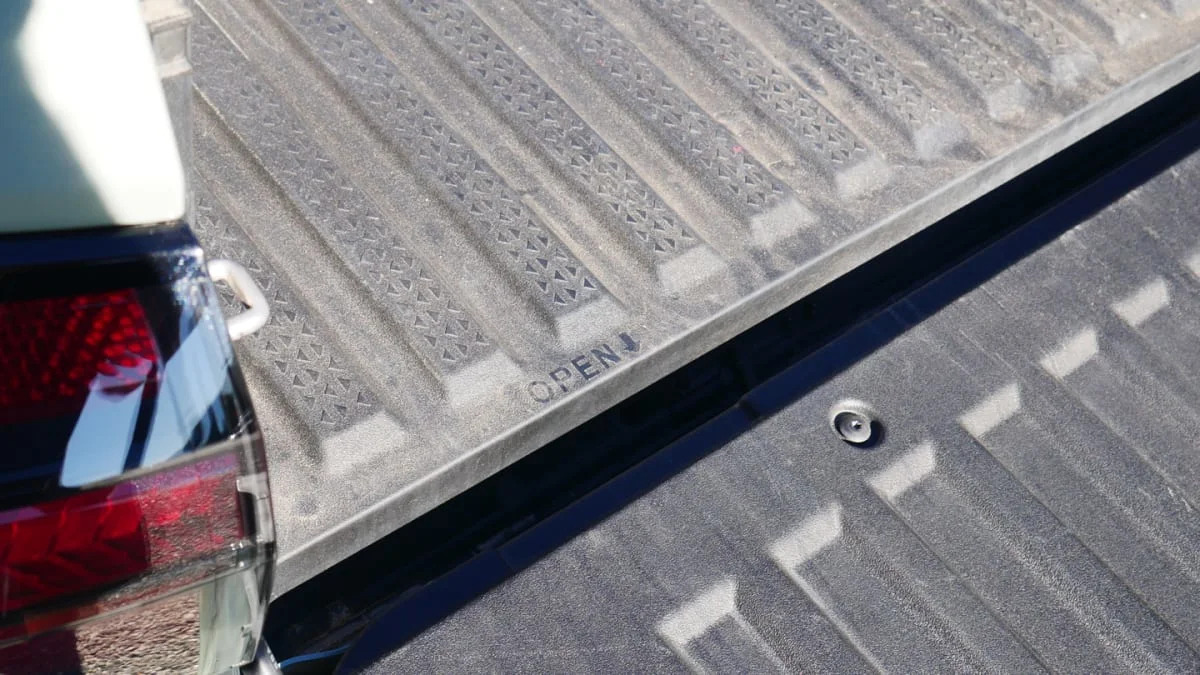
You can see the label indicating where the handle is located. It's definitely not as easy to access this handle, nor the the trunk itself, as in the Ridgeline. Both generations of Honda's pickup have featured a unique dual-action tailgate that drops down and swings out, the latter letting you walk right up to the edge of the bed and trunk. The Santa Cruz just has a drop-down tailgate. Imagine trying to load things into your trunk with a small table in the way.

Hyundai does not provide a cubic-foot volume for the bed trunk, but it's probably 30-40% of the Ridgeline's capacity. It's pretty shallow and I definitely didn't hold out much hope for any of my bags fitting (unlike in the Ridgeline).
But, what the hell? Cue the boilerplate. As in every Luggage Test I do, I use two midsize roller suitcases that would need to be checked in at the airport (26 inches long, 16 wide, 11 deep), two roll-aboard suitcases that just barely fit in the overhead (24L x 15W x 10D), and one smaller roll-aboard that fits easily (23L x 15W x 10D). I also include my wife's fancy overnight bag just to spruce things up a bit (21L x 12W x 12D).
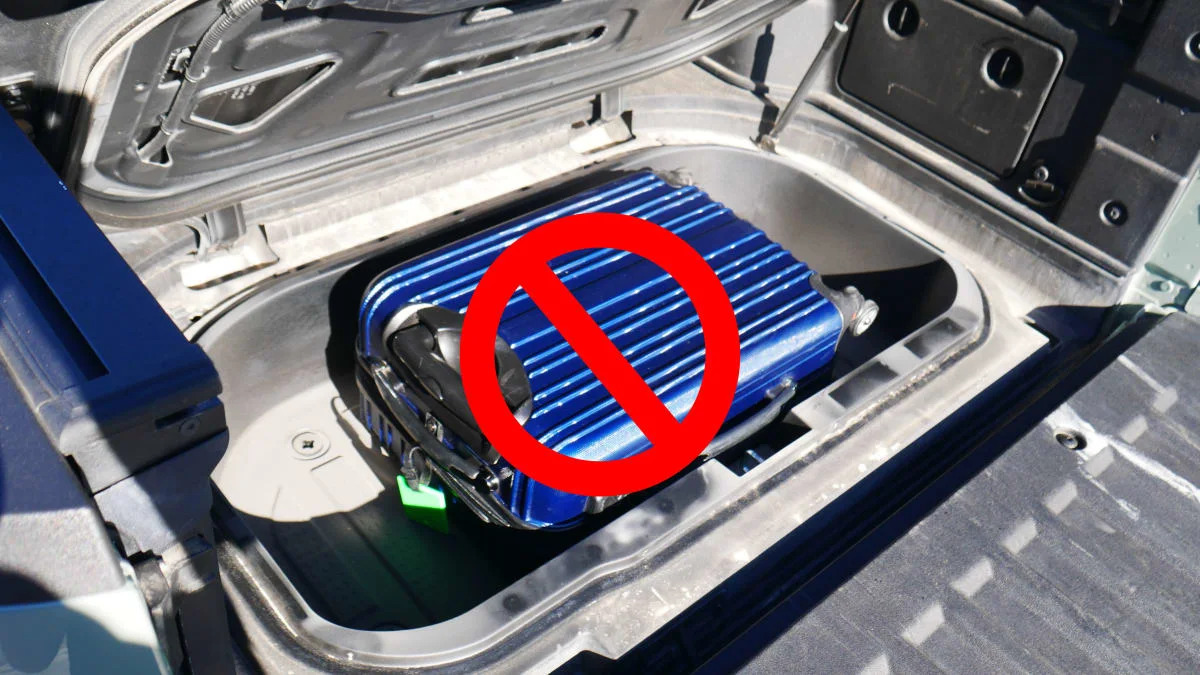
Nope! That's the smallest roller, and the fancy bag gets smushed, too.
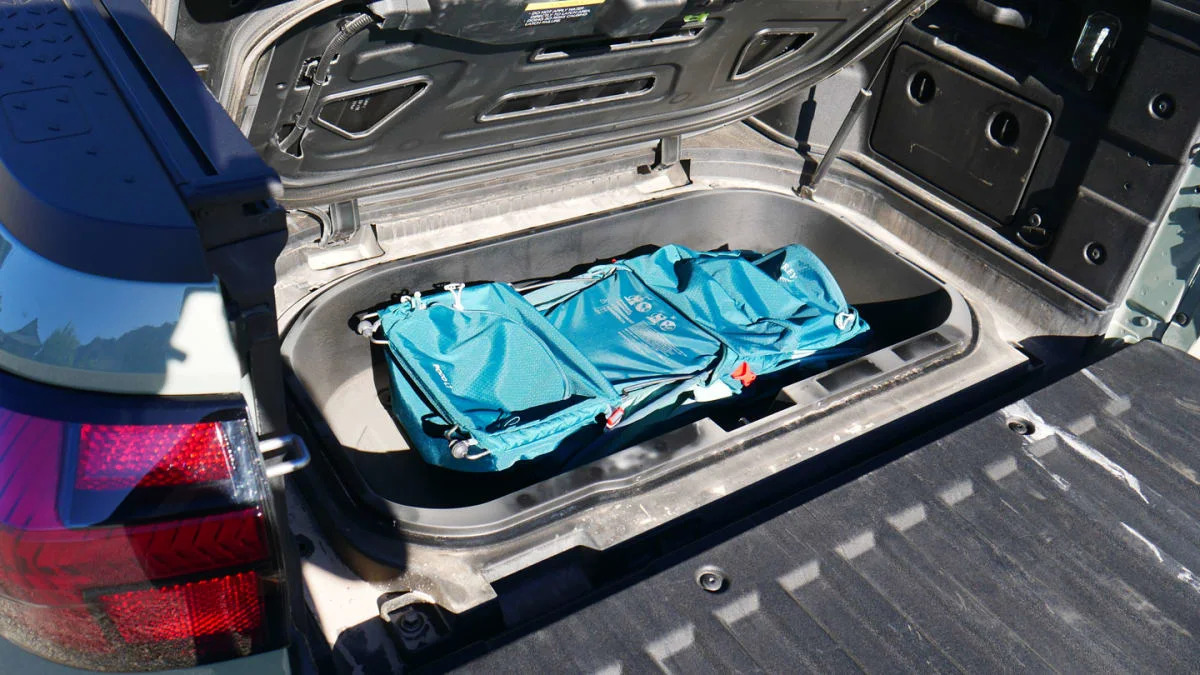
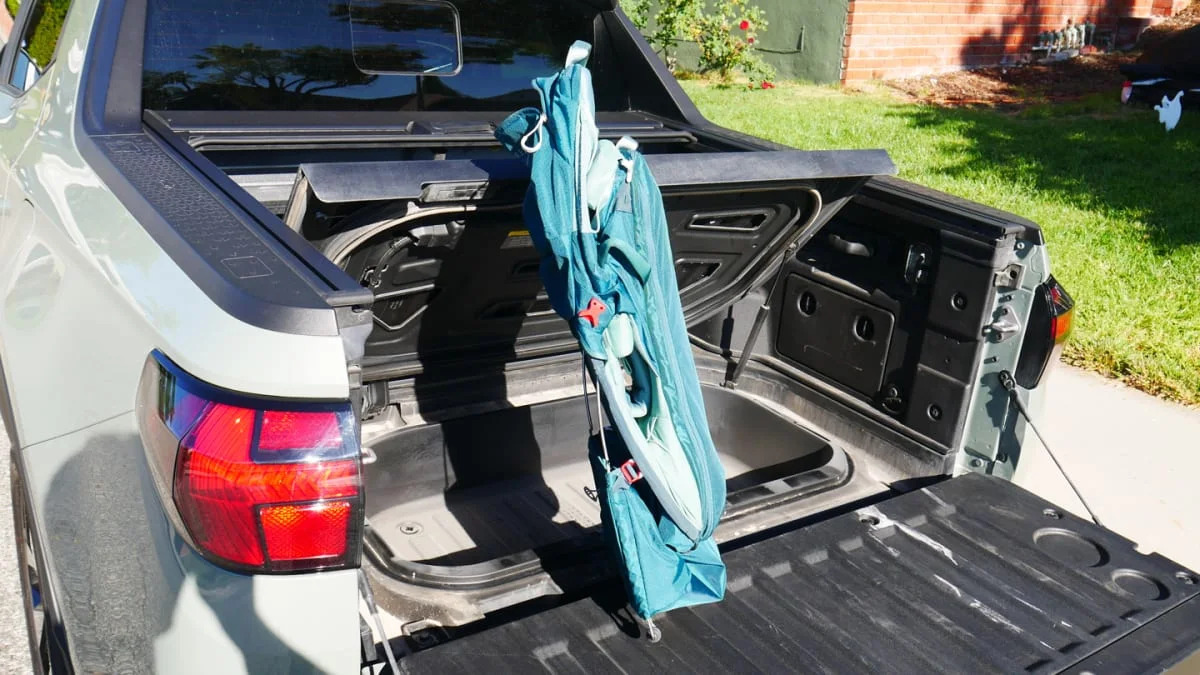
My folded-up Osprey Poco Lite child carrier backpack does fit, however, so yay! Ultimately, this is less of a trunk and more like a large storage bin. No problem, that's still a neat thing, too.
OK, now let's get to the full bed.
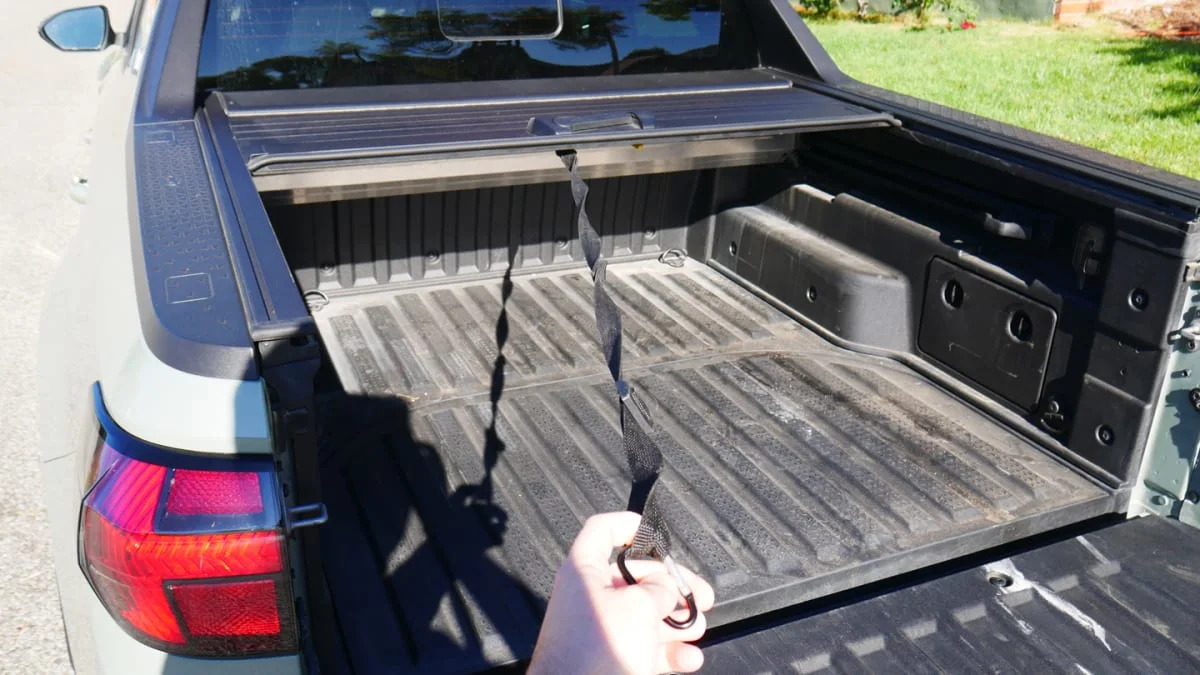
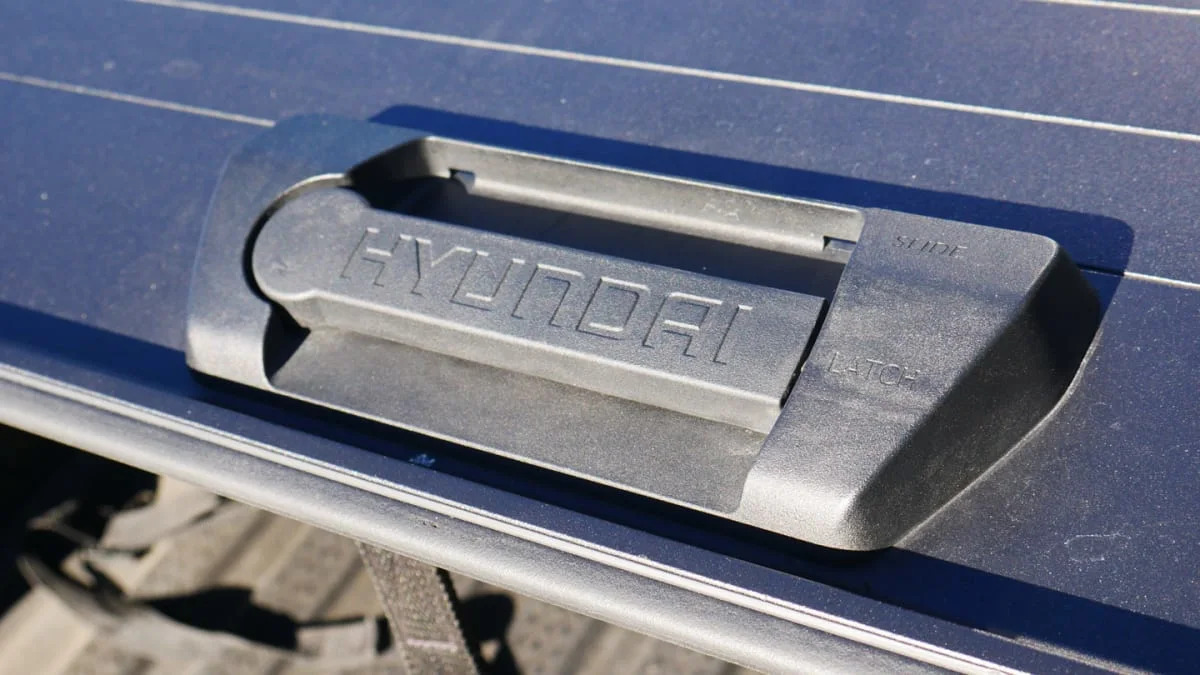
The cargo cover has a strap attached to it with a carabiner at the end to secure it to one of the bedside hooks.
There is a lock located underneath the handle. It does take a decent amount of effort to secure it closed with the tailgate down, so it's best to roll the cover shut before you close the tailgate.
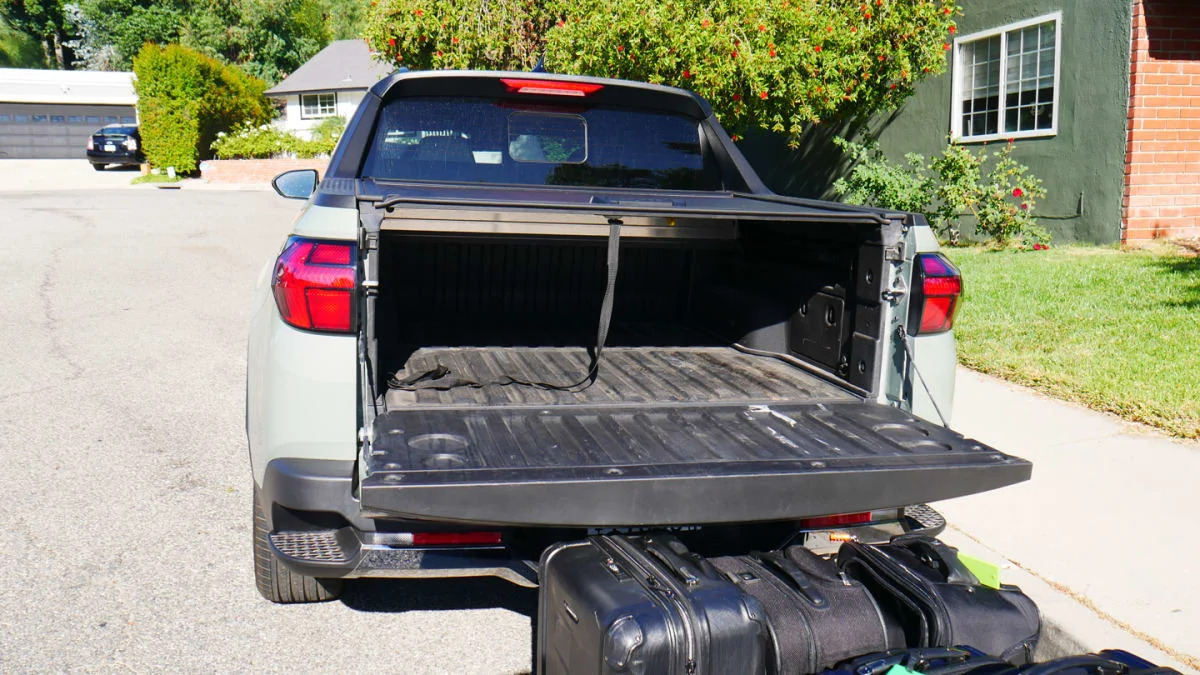
According to Hyundai's specs, the bed's depth is only 19.2 inches tall. That's not a lot. Let's see how the bags fit.
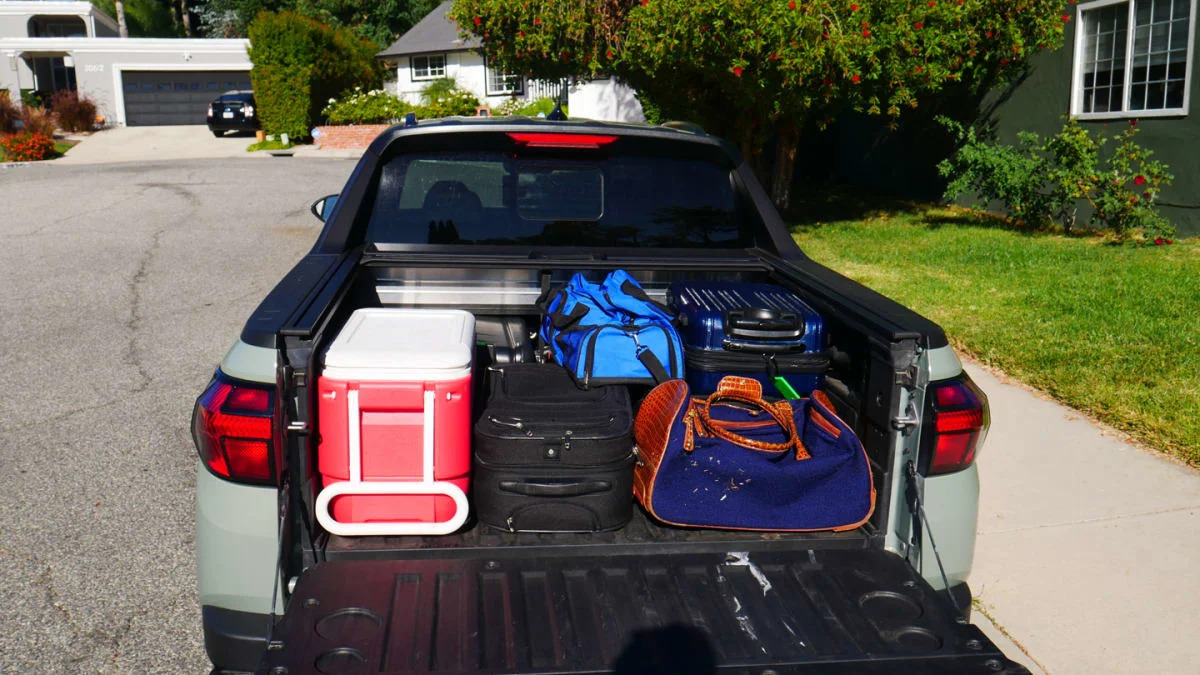
As you'd hope, all the bags fit with ease. And as you can see, I added the 38-quart cooler and small blue duffel bag that also fit in the Tucson during its luggage test.
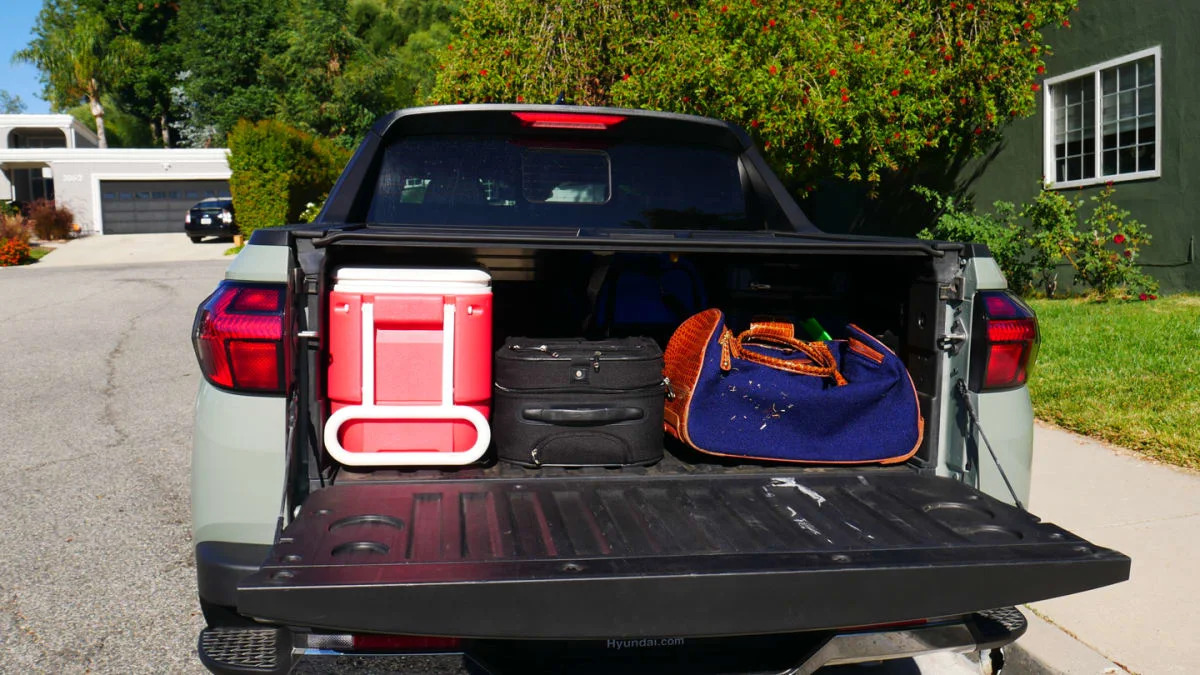
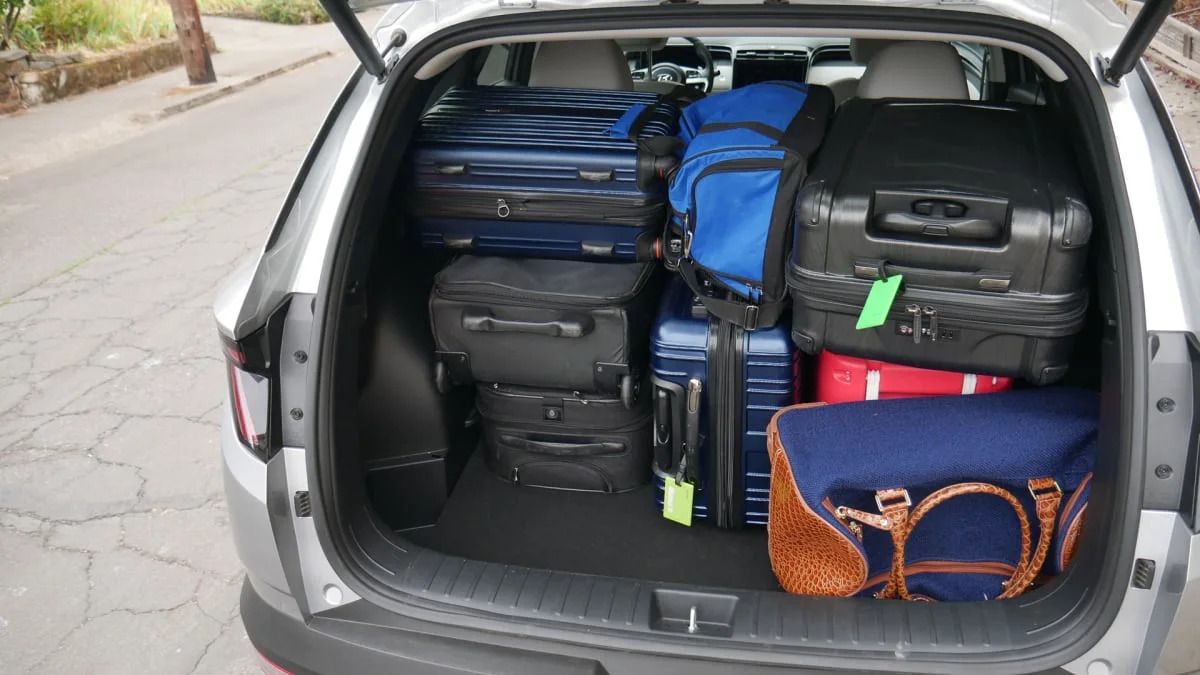
Although the Tucson had some space leftover, there's definitely more in the Santa Cruz. You do have to be mindful of not exceeding the height of the cover, but then, you have to be mindful of an SUV's liftgate, too.
Interestingly, Hyundai lists the bed volume as 27.0 cubic-feet. The Tucson specs say it has 38.7 cubic-feet behind its back seat. If that isn't illustrative of how you can't compare the cargo volume figures of different body styles, I don't know what is.
It's also worth noting that the Santa Cruz has a spare tire, whereas the Tucson Hybrid does not. Of course, the Tucson Hybrid is a hybrid, whereas the Santa Cruz does not offer that. It should, t'would make for a competitive crossover alternative. Possibly one without a spare tire, though. Hmm.
Anyway, here's the Santa Cruz's ultimate advantage over the Tucson and any compact crossover SUV ...
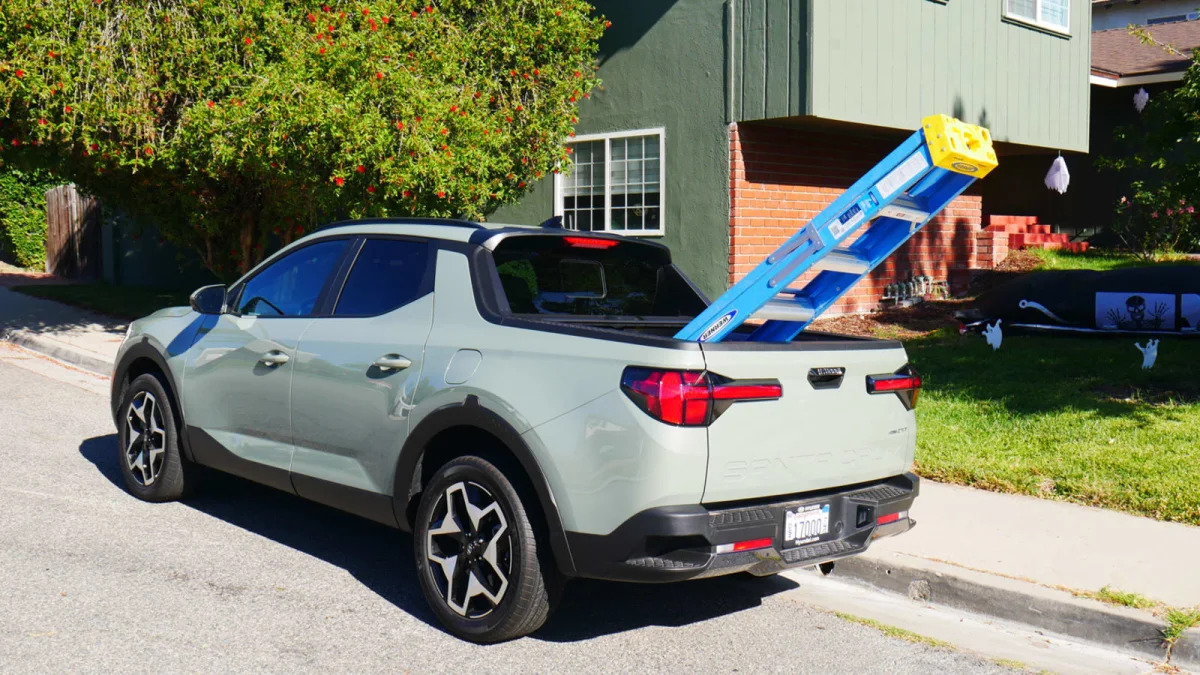
Try that in a Tucson!
You obviously shouldn't drive around like this, but a pickup bed would allow me to carry extra tall things in addition to all six standard luggage test bags. I basically just swapped the ladder for the cooler.
It's this functionality that I figure would lead someone to opt for a Santa Cruz over a compact SUV, beyond aesthetics of course.
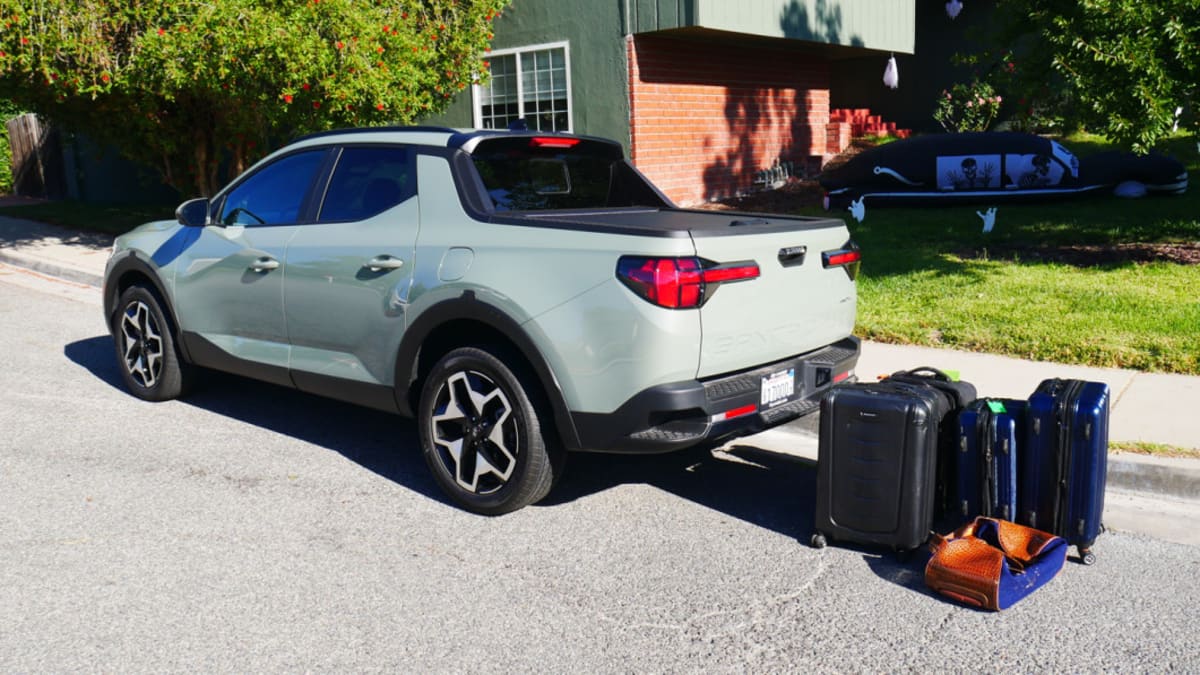
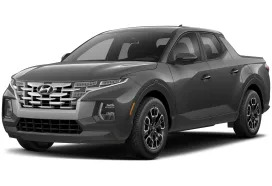
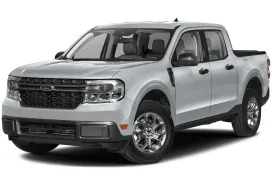
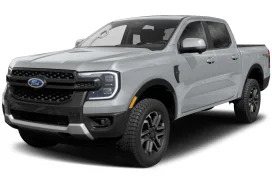

Sign in to post
Please sign in to leave a comment.
Continue